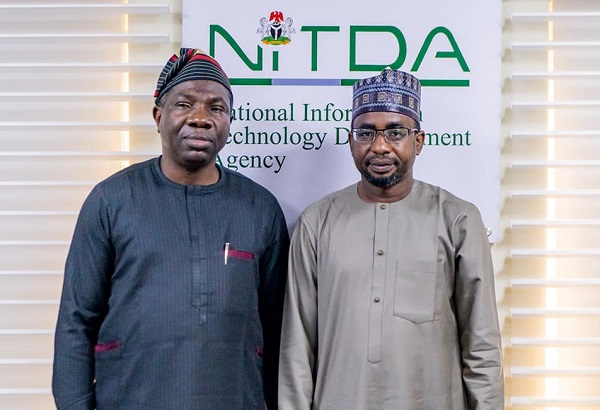
The director-general, National Information Technology Development Agency (NITDA), Mallam Kashifu Abdullahi, has opined that setting the digital identity process on track will ensure effective implementation of the National Digital Economy Policy and Strategy (NDEPS) within the stipulated period.
He made this assertion when he received the Nigeria Digital Identification for Development (ID4D) project team at the agency’s corporate headquarters in Abuja.
Abdullahi highlighted broadband penetration and digital identity among critical areas to the attainment of a digital economy and added that to achieve positive outcomes, there is the need for connectivity and identification of consumers or providers of the services, as well as the factor of its affordability.
The DG informed the team that NITDA’s mandate of developmental regulation is in line with what ID4D is working on and pledged the agency’s unalloyed support to them.
He acknowledged that collaboration between NITDA and ID4D as well as other relevant partners will always be welcomed.
The NITDA boss reiterated that government cannot do it alone. Thus, he urged ID4D to help in whatever way it can for Nigeria to get a digital identity and implement policies and mandates.
“[We need anything related to identity because] we need it to implement our mandate. Identity is key to a digital economy. We believe we need each other to succeed; our mandates are interwoven. We need ID to succeed and you also need us for the ID to be used in the digital economy,” Abdullahi said.
Also, he lauded what ID4D is doing, particularly in developmental regulation. According to him, it will make an impact on what NITDA is doing. “These Laws you are trying to help the government agencies review will equally help us.”
While expressing confidence that the Nigerian digital space will soon compete with others globally, Abdullahi said: “IT is dynamic. That is the reason why we are re-enacting our Bill that was passed in 2007. A lot of vocabularies are obsolete and things have changed. Without that enactment, it will be difficult for us to deliver.
“We need to have a robust law because technology is growing and becoming dynamic. Having a fixed law will be difficult to deliver when technology evolves. The law should be able to stretch and cover it.”
He further expressed concern about regulating the digital space, which he described as an “ungoverned space that needs to be regulated in the best way – a major challenge faced globally.
“The right regulation does not exist. We need to co-create it because it is not something that you can learn from the previous generation, due to its non-existence during their time. It is our collaboration that will bring the desired changes in developing the nation’s IT sector,” he noted.
Earlier in his address, the coordinator, Nigeria Digital ID4D Project, Musa Solomon appreciated NITDA’s stride in sanitising the Nigerian digital space.
“Since its establishment, NITDA has proven to be one of the Federal government institutions contributing immensely to the Nigerian Economy through its various relevant regulations, monitoring, evaluation and verification in fostering the development and growth of the Information Technology sector in the country.
Solomon said the ID4D project’s objective is to increase the number of persons with a National Identity Number (NIN) and issue a robust and inclusive foundational Identity system that facilitates their access to services.
“The project is designed following an ecosystem model and not limited to any single organisation. It involves different agencies of government, the private sector and civil society. The project has since identified NITDA as an important ecosystem implementing partner.”
The Nigeria Digital ID4D is a five-year project jointly funded by the World Bank, European Investment Bank and the French Development Agency.


